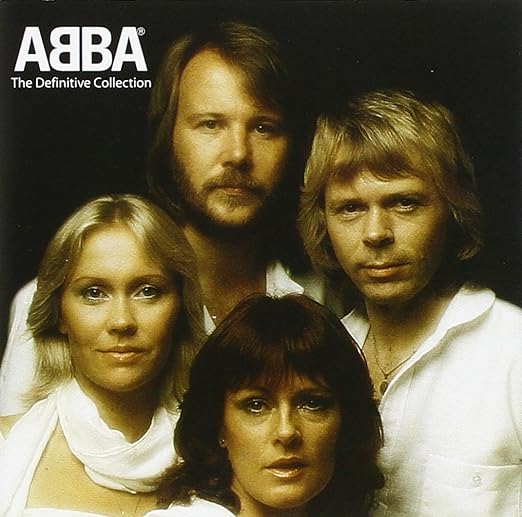
Trusted Source: NPR
ABBA, The Notorious B.I.G. and Green Day named to the National Recording Registry
April 16, 20245:00 AM ET
Heard on All Things Considered
Anastasia Tsioulcas
Every year since 2000, the Library of Congress has picked 25 recordings as “audio treasures worthy of preservation for all time.” The 2024 selections for the National Recording Registry, announced Tuesday morning, celebrate the sheer breadth of musical culture — from pop-culture favorites like ABBA, Green Day and The Notorious B.I.G. to more niche recordings that provide snapshots of the American experience.
The oldest inclusion on the 2024 roster is a 1919 recording from James Reese Europe, an early jazz pioneer who led the 369th U.S. Infantry Band — a Black regiment widely known as the “Harlem Hellfighters” — while the most recent is country act The Chicks’ 1998 album Wide Open Spaces.
The 2024 list spans folk, jazz, classical, hip-hop, Latin, pop, country, rock and punk. Some choices are more rarified, including one of the “ethnic music” recordings that major labels like Victor and Columbia were making in the 1920s, featuring artists from new and recently arrived immigrant communities in the U.S. (This year’s selection: 1928’s “Kauhavan Polkka” recorded by Victor, featuring Finnish-American musicians Viola Turpeinen and John Rosendahl.)
At the same time, many of the selections are among pop culture’s best-known artifacts, including Gene Autry’s perennial post-war Christmas classic, 1949’s “Rudolph, the Red-Nose Reindeer” — not to mention ABBA’s 1976 album Arrival, featuring such catalog staples as “Dancing Queen” and “Money, Money, Money.”
Hip-hop’s legacy is marked by a 1985 classic by Doug E. Fresh and Slick Rick, “La-Di-Da-Di” — a track that went on to be one of the most sampled and referenced sound recordings of all time—and The Notorious B.I.G.’s debut studio album, Ready to Die, from 1994.
Other inductees include Bill Withers’ enduring 1971 single “Ain’t No Sunshine”; pop-punk princes Green Day and their 1994 album Dookie; jazz trumpeter Lee Morgan’s benchmark 1964 album The Sidewinder; and a trio of recordings from 1978 — Blondie’s era-defining album Parallel Lines, The Cars’ self-titled debut album, and a classic of New York salsa, the Rubén Blades-written and Willie Colón-produced song “El Cantante,” performed by Héctor Lavoe.
While in past years, the Library of Congress’ annual selections have included speeches, news broadcasts, and other spoken audio recordings of documentary value, this year’s picks are almost entirely music, with one notable exception: comedian Lily Tomlin’s 1971 album This Is a Recording, which won her a Grammy Award for best comedy recording and hit No. 15 on the Billboard 200 album chart — a record for a female comedian.
Here are all 25 recordings selected for the 2024 National Recording Registry, listed in chronological order:
• “Clarinet Marmalade” – Lt. James Reese Europe’s 369th U.S. Infantry Band (1919)
• “Kauhavan Polkka” – Viola Turpeinen and John Rosendahl (1928)
• Wisconsin Folksong Collection (1937-1946)
• “Rose Room” – Benny Goodman Sextet with Charlie Christian (1939)
• “Rudolph, the Red-Nosed Reindeer” – Gene Autry (1949)
• “Tennessee Waltz” – Patti Page (1950)
• “Rocket ’88′” – Jackie Brenston and His Delta Cats (1951)
• “Catch a Falling Star” / “Magic Moments” – Perry Como (1957)
• “Chances Are” – Johnny Mathis (1957)
• The Sidewinder – Lee Morgan (1964)
• Surrealistic Pillow – Jefferson Airplane (1967)
• “Ain’t No Sunshine” – Bill Withers (1971)
• This is a Recording – Lily Tomlin (1971)
• J.D. Crowe & the New South – J.D. Crowe & the New South (1975)
• Arrival – ABBA (1976)
• “El Cantante” – Héctor Lavoe (1978)
• The Cars – The Cars (1978)
• Parallel Lines – Blondie (1978)
• “La-Di-Da-Di” – Doug E. Fresh and Slick Rick (MC Ricky D) (1985)
• “Don’t Worry, Be Happy” – Bobby McFerrin (1988)
• “Amor Eterno” – Juan Gabriel (1990)
• Pieces of Africa – Kronos Quartet (1992)
• Dookie – Green Day (1994)
• Ready to Die – The Notorious B.I.G. (1994)
• Wide Open Spaces – The Chicks (1998)